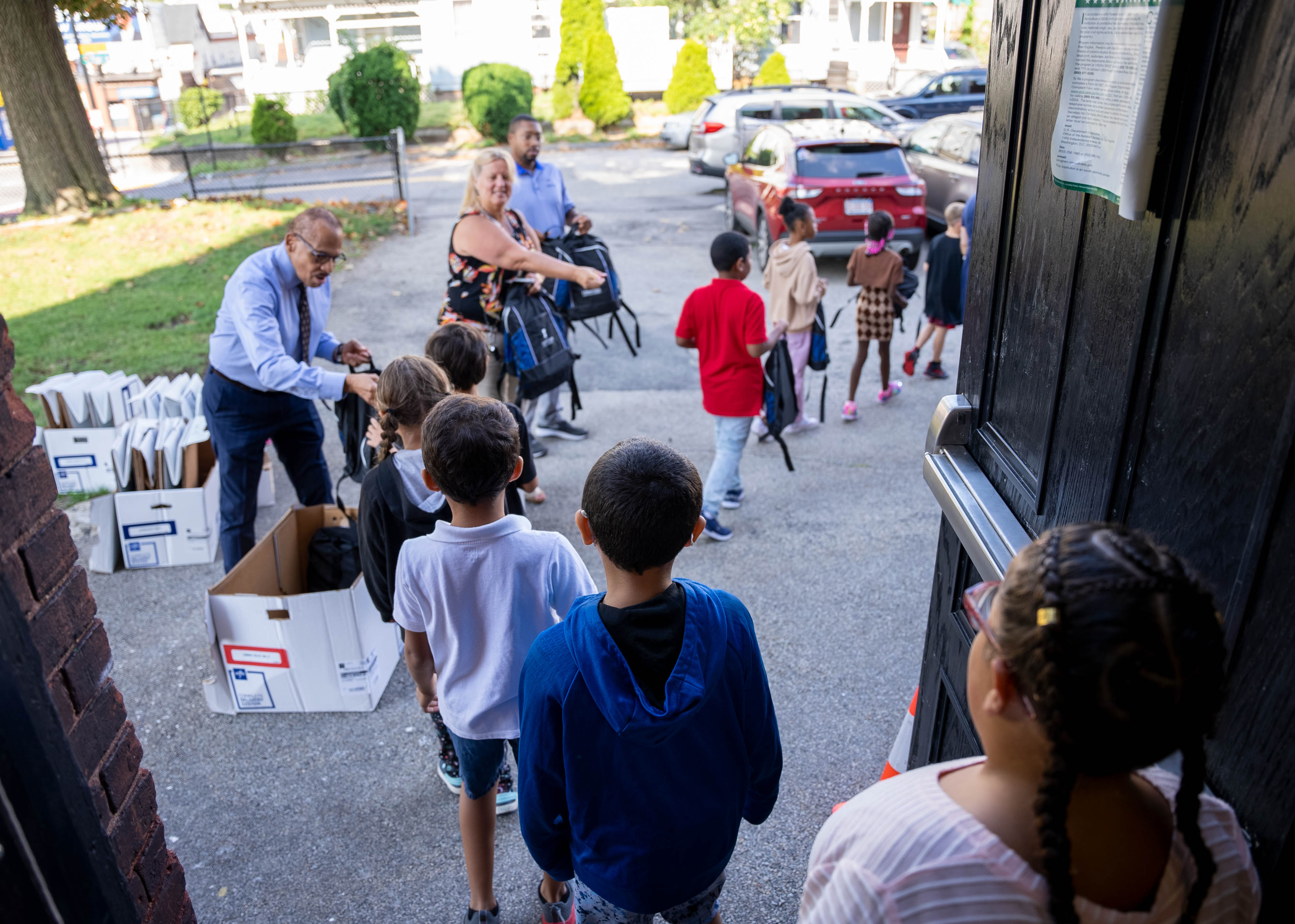Celebrating five years of local outreach through the Remillard Family Community Service Fund
Date Posted: Wednesday, November 16, 2022
A deep dedication to the local community is woven into the fabric of UMass Chan Medical School. Over the last five years, the Medical School has bolstered this commitment through 32 community service projects funded by the Remillard Family Community Service Fund. Established in 2015 through a $3 million gift from the Remillard Family Foundation, this endowed fund is dedicated to ongoing support for community outreach led by UMass Chan faculty, students, staff and partners.
“When discussing potential funding ideas with Chancellor [Michael F.] Collins, we were immediately drawn to the concept of a community service fund that would make thoughtful and worthwhile investments in the Central Massachusetts community for many years to come,” said Arthur J. Remillard III.
Each year, representatives from the Medical School evaluate project proposals from the UMass Chan community based on their potential to improve the lives and health of residents of Worcester and Central Massachusetts, with a focus on economically or educationally disadvantaged or underrepresented individuals and groups. Projects address some of the most challenging issues facing the local community, including:
- Identifying and addressing health inequities and disparities.
- Improving access to health care via free clinics.
- Supporting those struggling with mental illness and substance use disorders.
- Providing supportive environments for educational growth and future prosperity.
Spotlighted here are just two of the 32 projects that have positively impacted the local community since 2017.
Supporting students in North Quadrant of Worcester Public Schools
One of the first funded projects built upon the Medical School’s longstanding academic partnership with Worcester Public School’s North Quadrant. Recognizing that many of the quadrant’s K-12 students face socioeconomic barriers to academic success, the project launched multiple initiatives, including:
- Backpacks: Distribute hundreds of backpacks filled with school supplies to elementary school students.
- Washer/Dryers: Supply appliances to five schools with children whose families are unable to afford laundry services, helping to prevent students from embarrassment and missing school.
- Winterwear clothing drives: Provide thousands of outerwear pieces to children in Head Start through high school; distribute gift certificates for winterwear purchases.
- Food pantry: Build and continually stock North High food pantry with nutritiously balanced food.
- Attendance incentives: Provide theater tickets and sponsor a driver’s education course for students with improved attendance.
The initiative had an immediate and positive effect on students and their families that continues to this day. Activities in the first year spurred UMass Chan faculty, staff and students to raise close to $60,000 to sustain the programs, which continue to be supported through the Medical School’s
employee giving campaign, UMass Chan Cares.
Tackling the opioid epidemic
In fiscal year 2019, two funded projects directly addressed the opioid epidemic, which has deeply impacted the Worcester community. In 2019, Worcester’s
opioid fatality rate was one-and-a-half times greater than the Massachusetts opioid fatality rate.
One of these projects, the Overdose Prevention Fund, organized several initiatives designed to reduce overdose deaths, including development of
naloxone training videos for the UMass Memorial Medical Center Clinical Decision Unit, which were highly viewed; educational community symposia on substance use prevention, recognition, treatment and recovery; and a medication disposal program that resulted in the return of more than 500 pounds of medications within one year of the program’s launch.
